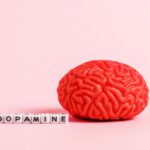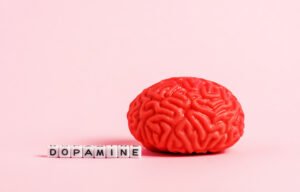Sharpening your brain is a critical aspect of maintaining good brain health. The brain is a complex organ responsible for controlling vital body functions, including thoughts, emotions, and behaviors. As such, it is essential to take care of it to ensure optimal functioning.
Understanding the Brain is the first step towards improving brain health. The brain is made up of different regions, each responsible for specific functions. It is also a highly adaptable organ that can change and grow throughout a person’s life. By understanding how the brain works, individuals can take steps to improve its functioning and overall health.
Key Takeaways
- Understanding the brain is critical to improving brain health.
- Lifestyle factors, such as diet and exercise, can impact brain health.
- Mental exercises and activities can help sharpen the brain and prevent brain disorders.
Understanding the Brain
Brain Cells and Their Functions
The human brain is composed of billions of cells, including neurons and glial cells, each with its unique function. Neurons are responsible for transmitting information throughout the brain, while glial cells provide support and protection. Neurons communicate with each other through electrical and chemical signals, which are essential for learning, memory, and other cognitive processes.
The Aging Brain
As people age, their brains undergo changes that can affect their cognitive abilities. These changes include a decrease in the number of neurons and synapses, as well as a decrease in the production of neurotransmitters. These changes can lead to cognitive decline, which can affect memory, attention, and other cognitive abilities.
Cognitive Abilities and Their Importance
Cognitive abilities are essential for mental functioning and are crucial for daily activities such as problem-solving, decision-making, and communication. Some of the most important cognitive abilities include attention, concentration, focus, processing speed, and executive function. These abilities are critical for mental agility and can help individuals learn, think, and adapt to new situations.
In addition to these abilities, other cognitive functions, such as memory, language, logic, spatial reasoning, and problem-solving, are also important for mental functioning. These functions rely on different areas of the brain and involve complex neural networks that allow individuals to repeat, map, and solve problems.
Overall, understanding the brain and its functions is essential for sharpening cognitive abilities and maintaining mental agility throughout life. With neuroplasticity, the brain’s ability to change and adapt, individuals can engage in activities such as mindfulness, learning, and brain exercises to promote cognitive function and protect against cognitive decline and neurodegenerative diseases.
Lifestyle Factors Impacting Brain Health
Nutrition for the Brain
A healthy diet is essential for maintaining brain health. Consuming a diet rich in antioxidants, fruits and vegetables, and omega-3 fatty acids can help improve brain function. Berries, dark chocolate, spinach, and pumpkin seeds are some of the foods that are known to have positive effects on brain health. Flavonoids found in fruits and vegetables are also known to improve cognitive function. Vitamins such as folate and B vitamins are also essential for maintaining brain health.
Impact of Sleep on Brain Health
Sleep is essential for maintaining alertness, mood, and cognitive function. Lack of sleep can lead to memory problems, difficulty concentrating, and poor decision-making. It is recommended that adults get at least 7-8 hours of sleep per night to maintain optimal brain health.
Physical Activity and Brain Health
Regular exercise, especially aerobic exercise, is important for maintaining brain health. Exercise has been shown to improve cognitive function, memory, and mood. Dance and tai chi are also beneficial for improving balance, coordination, and reducing the risk of falls.
Effects of Alcohol, Smoking and Coffee
Smoking and excessive alcohol consumption can have negative effects on brain health. Smoking can lead to decreased cognitive function, while excessive alcohol consumption can lead to memory problems and impaired decision-making. However, moderate coffee consumption has been shown to have positive effects on brain function and may reduce the risk of cognitive decline.
Mental Exercises to Sharpen Your Brain
There are many ways to keep your mind sharp, and mental exercises are a great way to do it. Here are some effective exercises that can help you improve your cognitive abilities and keep your brain healthy.
Puzzles and Brain Games
Puzzles and brain games are a great way to challenge your mind and keep it active. Jigsaw puzzles, sudoku, crossword puzzles, and chess are just a few examples of games that can help you improve your cognitive abilities. Scrabble is another great game that can help you improve your vocabulary and language skills.
Learning New Skills and Languages
Learning new skills and languages is another great way to keep your brain sharp. When you learn something new, your brain has to work harder to process and retain the information. This can help improve your memory and cognitive abilities. Whether it’s learning a new language, taking up a new hobby, or mastering a new skill, the key is to keep learning.
Music and the Brain
Music has been shown to have a positive effect on the brain. Listening to music can help improve your mood, reduce stress, and even improve your cognitive abilities. Playing a musical instrument can also help improve your hand-eye coordination and memory.
Socializing and Emotional Intelligence
Socializing and building relationships can also help keep your brain sharp. When you interact with others, you are exercising your emotional intelligence, which is the ability to recognize and manage your own emotions and the emotions of others. Building strong relationships with friends and family can also help reduce stress and improve your overall well-being.
Overall, there are many ways to keep your mind sharp and improve your cognitive abilities. By incorporating mental exercises into your daily routine, you can help keep your brain healthy and functioning at its best.
Preventing and Managing Brain Disorders
Understanding Dementia and Alzheimer’s
Dementia and Alzheimer’s disease are two of the most common brain disorders that affect memory and cognitive function. Alzheimer’s disease is a type of dementia that affects memory, thinking, and behavior. It is a progressive disease that can lead to severe memory loss and cognitive impairment. Dementia is a broader term that encompasses several types of brain disorders that affect memory, thinking, and behavior.
The peak of cognitive function occurs in the late 20s to early 30s, and after that, the brain starts to decline gradually. However, some factors can accelerate this decline, such as genetics, lifestyle, and environmental factors. The hippocampus is the part of the brain responsible for memory formation and retrieval, and it is also one of the first areas to be affected by Alzheimer’s disease.
Depression and Anxiety’s Impact on the Brain
Depression and anxiety are two common mental health disorders that can have a significant impact on the brain. Depression can lead to memory problems and cognitive impairment, and it can also increase the risk of developing dementia. Anxiety can cause cognitive impairment, and it can also affect memory and attention.
Preventing Cognitive Decline
There are several ways to prevent cognitive decline and reduce the risk of developing dementia and Alzheimer’s disease. One of the most effective ways is to maintain a healthy lifestyle, including regular exercise, a balanced diet, and adequate sleep. Engaging in mentally stimulating activities, such as reading, playing games, and learning new skills, can also help preserve cognitive function.
Role of Antioxidants and Anti-inflammatory Foods
Antioxidants and anti-inflammatory foods can help protect the brain from oxidative stress and inflammation, which are two major contributors to cognitive decline. Foods rich in antioxidants include berries, nuts, and dark chocolate, while anti-inflammatory foods include turmeric, ginger, and broccoli.
Harvard Medical School recommends a Mediterranean-style diet that emphasizes fruits, vegetables, whole grains, fish, and healthy fats, such as olive oil and nuts, to reduce the risk of cognitive decline and improve longevity.
| Foods rich in Antioxidants | Anti-inflammatory Foods |
|---|---|
| Berries | Turmeric |
| Nuts | Ginger |
| Dark Chocolate | Broccoli |
In conclusion, preventing and managing brain disorders such as dementia and Alzheimer’s disease require a holistic approach that includes maintaining a healthy lifestyle, engaging in mentally stimulating activities, and consuming a diet rich in antioxidants and anti-inflammatory foods.
Science and Future of Brain Health
Research has shown that the brain is a complex and dynamic organ that can be trained and strengthened like a muscle. The field of neuroscience is constantly evolving, and new discoveries are being made every day about how the brain works and how to keep it healthy.
One area of research that has gained a lot of attention in recent years is the relationship between diet and brain health. Studies have shown that certain foods, such as blueberries, can improve cognitive function and protect against age-related decline. Blueberries are rich in antioxidants and other compounds that have been shown to improve memory and concentration.
Another area of research that is gaining momentum is the study of intelligence and how it can be enhanced. While some people may be born with a higher IQ, research has shown that intelligence can be improved with training and practice. Brain training exercises, such as puzzles and memory games, have been shown to improve cognitive function and increase intelligence.
Looking to the future, scientists are exploring new ways to improve brain health and function. One promising area of research is the use of neurotechnology, such as brain-computer interfaces and neurofeedback, to enhance cognitive function and treat neurological disorders. These technologies have the potential to revolutionize the way we think about brain health and open up new possibilities for treating brain-related conditions.
In conclusion, the science of brain health is a rapidly evolving field with exciting new discoveries being made all the time. By staying informed and taking proactive steps to protect and enhance brain function, individuals can improve their cognitive abilities and lead healthier, more fulfilling lives.
Frequently Asked Questions
What are some effective ways to keep your brain sharp as you age?
There are many ways to keep your brain sharp as you age. Some effective ways include staying physically active, eating a healthy diet, getting enough sleep, challenging your brain with new activities, and socializing with others.
What are some brain exercises that can improve cognitive function?
Brain exercises that can improve cognitive function include activities such as crossword puzzles, Sudoku, memory games, and learning a new language or skill. These exercises can help to improve memory, attention, and problem-solving skills.
What are some signs of a sharp mind?
Some signs of a sharp mind include the ability to think critically and creatively, good memory, strong problem-solving skills, and the ability to learn quickly and adapt to new situations.
How can you sharpen your memory?
To sharpen your memory, you can try techniques such as repetition, visualization, and association. You can also challenge your memory by learning new things, playing memory games, and practicing recall.
What are some activities that can help to sharpen your mind?
Activities that can help to sharpen your mind include reading, writing, playing games, learning new skills, and engaging in social activities. These activities can help to keep your brain active and engaged.
What is the scientific secret to a sharper mind?
There is no one scientific secret to a sharper mind. However, research suggests that staying physically active, eating a healthy diet, getting enough sleep, and challenging your brain with new activities can all help to improve cognitive function and keep your brain sharp as you age.









